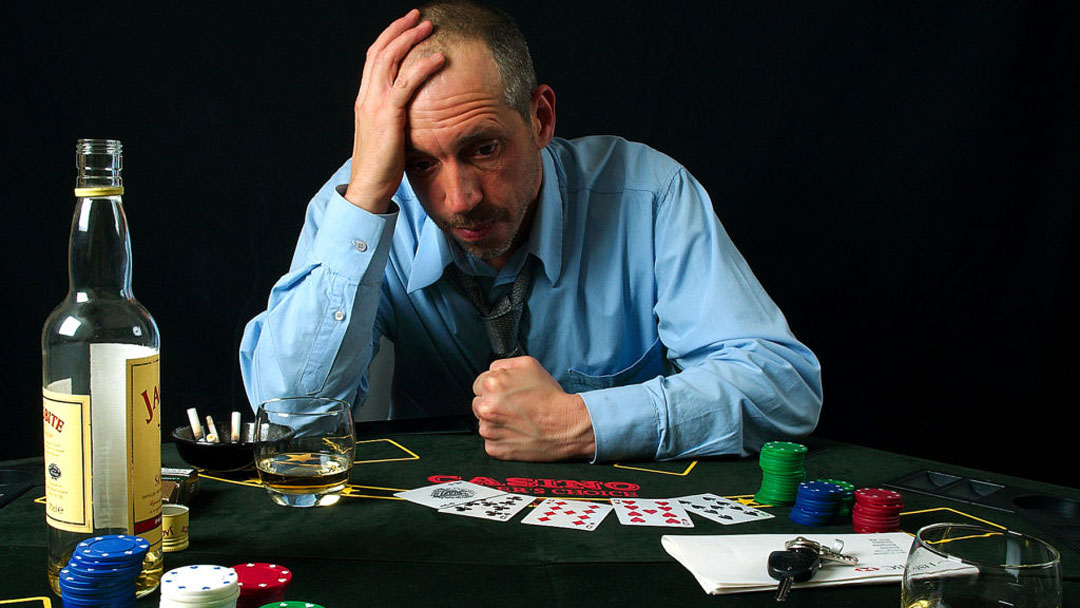Gambling is undeniably thrilling. It’s an exciting blend of risk, reward, anticipation, and adrenaline. Yet beneath the bright lights and vivid graphics of online casinos like when you go to Playzilla, your body and mind are responding in complex ways—some positive, others potentially harmful. While many see casino gaming as entertainment, it’s important to understand the physiological and psychological reactions happening during play. What exactly does gambling do to your body? How does it affect your stress levels, your heart rate, and even your brain chemistry?
In this detailed exploration, we’ll reveal the hidden ways gambling impacts your health, shedding light on the fine line between exhilarating fun and harmful stress.
Understanding the Stress Response During Gambling
What Is the Stress Response?
The human body is programmed to respond quickly and efficiently to stress. When facing uncertainty or excitement—such as placing bets at a casino—your body triggers the “fight-or-flight” mechanism, releasing hormones like adrenaline and cortisol into your bloodstream.
- Adrenaline raises your heart rate, increases alertness, and sharpens your senses.
- Cortisol boosts your energy levels and keeps you mentally sharp—but chronic high levels can harm your health over time.
In moderation, this stress response can feel exhilarating. When you log in, your body may perceive gambling as an exciting challenge, activating this response. However, prolonged exposure can cause significant physical and psychological damage.
Immediate Physical Reactions to Gambling
Increased Heart Rate and Blood Pressure
Within moments of placing a bet, your body reacts physically. Your heart rate accelerates, and your blood pressure rises as adrenaline floods your system. Players often describe feeling their heart pounding, especially during intense rounds of roulette or slots.
Short-Term Effects Include:
- Temporary spike in blood pressure
- Increased heart rate
- Sweating and clammy palms
- Rapid breathing or shortness of breath
Heightened Alertness and Focus
At the same time, gambling triggers heightened cognitive function. Players report feeling highly focused, alert, and engaged—at least initially. This can make gambling feel incredibly satisfying and addictive, as your brain associates the activity with positive reinforcement.
When you first go to casino, these physiological reactions can create an immediate sense of excitement and pleasure.
Chronic Gambling and Its Impact on Physical Health
Continuous Activation of the Stress Response
Casual gambling might be harmless fun, but frequent, prolonged gambling sessions put the body under continuous stress. Constant exposure to adrenaline and cortisol has serious long-term consequences, including:
- Cardiovascular issues: Chronic high blood pressure and increased risk of heart disease.
- Sleep disturbances: Excess cortisol disrupts your sleep cycle, causing insomnia and fatigue.
- Digestive problems: Stress hormones can cause stomach ulcers, IBS, and other gastrointestinal conditions.
Immune System Suppression
Chronic stress significantly weakens your immune system. When gambling habits cross into compulsive territory, your body’s defenses decrease, making you more susceptible to illnesses and infections.
Psychological Stress and Gambling: Mind Over Matter
Gambling and Mental Health
Gambling stress isn’t just physical—it deeply affects mental health. The ups and downs of winning and losing cause intense emotional swings, which can lead to anxiety, depression, and mood disorders.
- Anxiety: Players often feel restless or anxious about the possibility of losing money, creating persistent worry and stress.
- Depression: Persistent losses or the stress of gambling debts can trigger feelings of hopelessness or worthlessness.
When you frequently go to casino, it’s crucial to stay mindful of emotional reactions to avoid spiraling into mental health struggles.
Addiction and Compulsive Behavior
Repeated gambling and high-stakes betting can create patterns similar to substance addiction:
- Dopamine release: Wins cause dopamine spikes, reinforcing gambling behavior.
- Withdrawal symptoms: Stress and anxiety increase dramatically during periods without gambling.
This addiction cycle significantly increases both physical and psychological stress, causing long-term harm if not addressed.
Neurological Impact: Gambling’s Effect on the Brain
Dopamine and Reward Pathways
Every time you gamble, especially when you win, your brain releases dopamine—the “feel-good” neurotransmitter. Over time, the brain associates gambling with these rewarding feelings, strengthening neural pathways that encourage repeated gambling.
However, chronic gambling reduces dopamine’s effectiveness, requiring bigger wins or higher stakes to experience the same pleasurable feelings—similar to tolerance in drug addiction.
Reduced Impulse Control
Regular gamblers often experience diminished impulse control due to changes in the brain’s frontal cortex, which regulates judgment and decision-making. The more frequently you gamble, the harder it becomes to resist the urge to continue—even when it’s detrimental to your health or finances.
Social Stress: Gambling’s Impact Beyond the Individual
Strained Relationships
Problematic gambling behavior doesn’t only affect your body—it significantly impacts your social and family life. Financial strain, secrecy, and emotional withdrawal can create tension and isolation.
- Arguments over gambling losses
- Social withdrawal due to stress or shame
- Decreased trust in personal relationships
Workplace Performance Issues
The stress caused by gambling can negatively impact work performance, leading to absenteeism, reduced productivity, and even job loss—further exacerbating the cycle of stress and anxiety.
Recognizing the Signs of Gambling-Related Stress
Physical Symptoms
- Persistent headaches or migraines
- Chronic fatigue or insomnia
- Digestive issues such as stomach pains or nausea
- Unexplained weight gain or loss
Emotional and Behavioral Symptoms
- Constant irritability or mood swings
- Obsessive thoughts about gambling
- Neglecting responsibilities and social isolation
- Feeling guilty or ashamed after gambling
How to Reduce Gambling-Induced Stress
Responsible Gambling Habits
Before you go to casino, consider establishing responsible gambling practices:
- Set strict spending limits per session
- Use built-in responsible gambling tools offered by casinos
- Schedule frequent breaks to reduce stress build-up
- Avoid chasing losses—accept losses as part of the experience
Stress Management Techniques
- Meditation and mindfulness: Practicing mindfulness helps control emotional reactions and reduces stress levels.
- Regular physical exercise: Exercise reduces stress hormones and improves mental well-being.
- Social support: Maintain open communication with friends and family to reduce isolation and stress.
How Online Casinos Can Help Players
Responsible online casinos play a crucial role in managing gambling stress. Platforms typically offer:
- Responsible gambling features like deposit limits and cool-off periods
- Access to self-exclusion tools
- Clear communication about the risks of gambling and resources for support
The Positive Side: Gambling as Controlled Entertainment
When Gambling Can Be Healthy
In moderation, gambling can positively affect your mood and well-being by providing excitement, entertainment, and cognitive stimulation. The key is maintaining control and recognizing your limits.
- Boosting social connections through interactive casino games
- Improving cognitive skills such as strategic thinking and decision-making
- Enhancing mood through moderate, controlled excitement
Case Study: Healthy Gambling Practices
Take John, a responsible gambler who regularly logs into casino for short, controlled sessions. He sets clear limits, uses the platform’s tools to avoid overspending, and treats gambling strictly as entertainment.
- John enjoys gambling without stress or guilt
- His physical and mental health remain unaffected
- He effectively manages excitement and anxiety through responsible play and regular breaks
Conclusion: Balancing Excitement and Health in Gambling
Playing casino games online — can be exciting and enjoyable, but it comes with significant stress-related risks. Recognizing the physical, emotional, and psychological impacts gambling can have on your body is critical for responsible play.
By maintaining balanced gambling habits, using responsible gaming tools, and actively managing stress, you can enjoy the excitement of online casinos without negative health consequences. Casinos offer features and resources to help players manage these risks, ensuring gambling remains a safe, enjoyable form of entertainment.
Remember, gambling should always enhance your life, not compromise your health. Stay informed, gamble responsibly, and always put your physical and mental well-being first.

